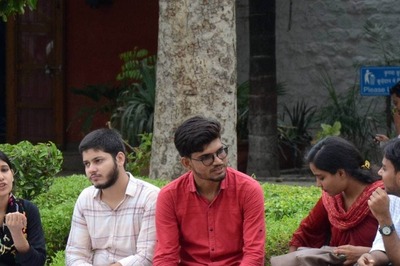
views
London: British medical researchers are advising consumers against buying Indian ayurvedic drugs online claiming they contain lead, mercury and even arsenic.
Their warning is based on research at Boston University that a fifth of ayurvedic medicines bought over the Internet contained dangerous levels of either of the three substances.
Some had 100 to 10,000 times the recommended safety levels, the study shows. All three can cause symptoms such as vomiting, stomach pain and liver problems and are potentially fatal even in small doses.
Some of the remedies, known as Rasa shastra, are designed to contain elements of the metals, but in levels that practitioners claim is safe. However, the tests, on 193 products, made by 37 different manufacturers, showed that all the products found to contain lead, mercury and arsenic, had toxic levels.
Robert Saper, who led the study, called for tougher controls on herbal remedies sold over the internet. All the websites looked at were based in either the US or India but sold their products worldwide, including to consumers in Britain.
Ayurveda, a traditional system of medicine practised in India for centuries, is becoming increasingly popular in Britain and has attracted celebrity fans said to include Madonna and Naomi Campbell.
Practitioners claim that the system can be used to treat a range of conditions from anxiety, insomnia and depression to high blood pressure, osteoporosis and diabetes.
"The medicines which are supposed to cure sickness should not promote another illness due to the presence of toxic materials such as lead," said Venkatesh Thuppil, Director of the National Referral Centre for Lead Poisoning in India, who also took part in the study.
NS Moorthy, the general secretary of the Ayurvedic Medical Association UK, told The Telegraph it was "totally unacceptable" for dangerous remedies to be sold over the internet.
He added, "We advise anyone who is interested in ayurvedic medicine to see a qualified ayurverdic practitioner in person, to be diagnosed and receive treatment."
But Prof Edzard Ernst, Britain's only professor of complementary medicine, at the Peninsula Medical School, Plymouth, said that only a "fool" would continue to take the remedies as there was a danger that even qualified practitioners could be buying their remedies from the same sources as those in the study.




















Comments
0 comment